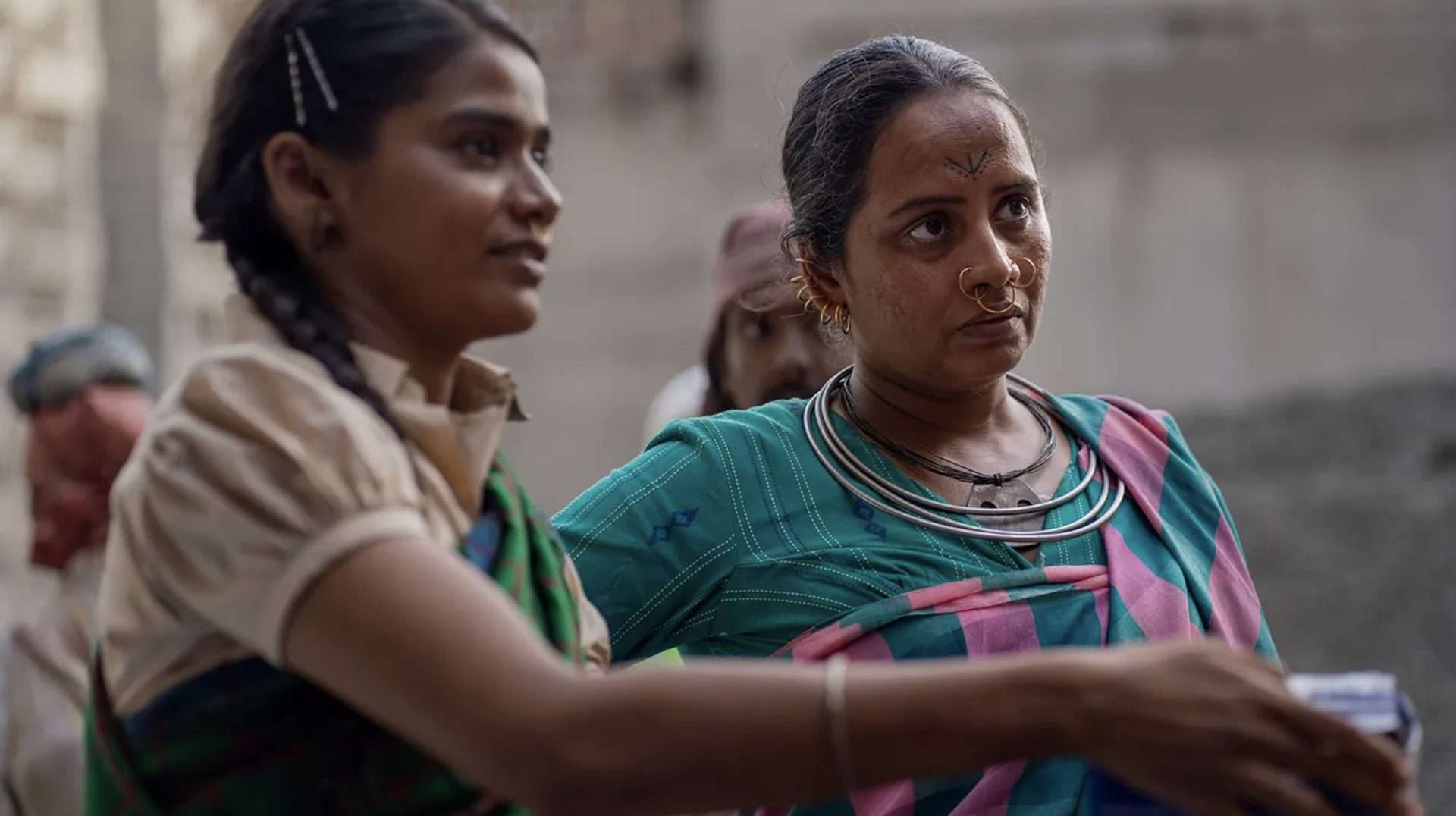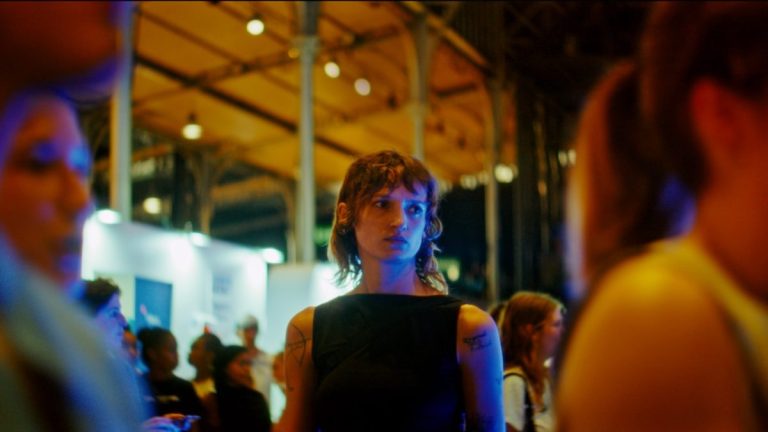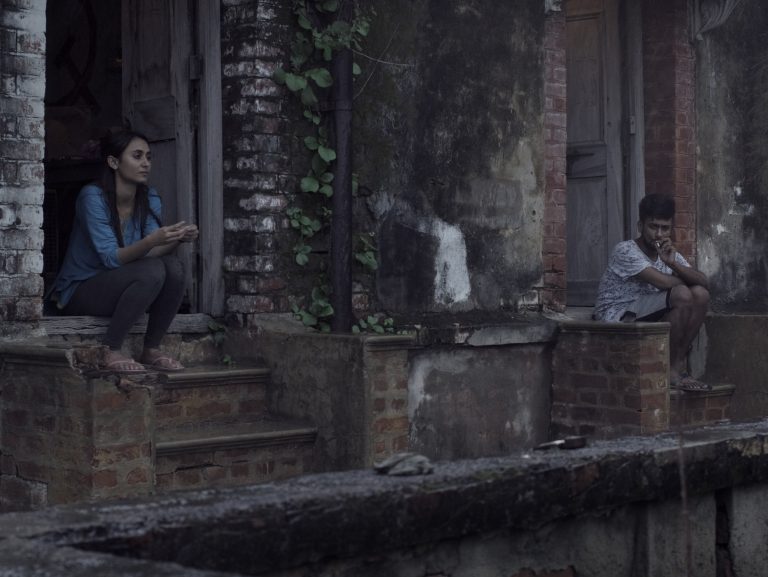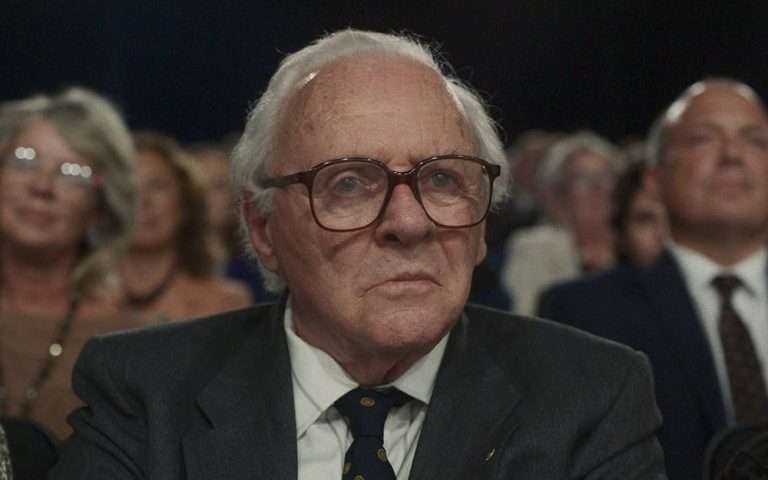At multiple points in writer-director Devashish Makhija’s latest film Joram, we are presented with images that put the word ‘pragati’ at the forefront – whether it is in reference to the steel mining conglomerate of the same name, a place called ‘Pragati Nagar’ in Jharkhand, or a placeholder for the idea of progress and development that can mean different things to different groups of people.
The Hindi word ‘pragati,’ which literally translates progress or development in English, holds multiple simultaneous meanings in Makhija’s film. On one level, there is the obvious meaning – it’s the name of a place as well as a steel mining corporation called Pragati Steel Mines. However, nothing is as simple as it seems in Joram. There is always something happening beneath the surface in the deliberate choices that Makhija makes in his film; there is the obvious text and then the subtext. It depends on how far you’re willing to dig under the surface.
The choice of the word ‘pragati’ and how frequently we circle back to it repeatedly is interesting. The entire film hinges on this word and how progress and development translate into reality from an abstract idea for various invested groups and stakeholders – be it the mining sector, the government, the tribals and Adivasis who inhabit the land, and the rebel Naxalite groups fighting for their cause – they all have their own version of what ‘pragati’ means to them. There are no easy answers here. As a local politician from the Chandwa district in Jharkhand says, “Development isn’t maths. Everything doesn’t always add up.”
Why did I begin with this obsession over the word ‘pragati’? Because, of course, ‘pragati’ is almost synonymous with another word for progress and development, ‘vikas’ – a word which features prominently in slogans of the current ruling political party in India. Once you start connecting the dots, the subtext becomes clearer and more obvious. It doesn’t take long to piece together that Pragati Steel Mines is a stand-in for a major mining conglomerate that’s widely favored by the ruling party. Once you start pulling that string, the picture becomes clearer.
On the surface, Joram is an intense and gripping genre film – a survival thriller where our main protagonist, Dasru (a deliberately subdued Manoj Bajpayee), is constantly on the run with his young baby while getting hunted. Hiding a dark past and having changed his identity, Dasru is working as a daily wage laborer in Mumbai. He is living far away from his village, Jhinpidi in Jharkhand, in a cramped space with his wife Vaano (Tannishtha Chatterjee) and a young child.
When Vaano muses, “If I got a new saree today, I’d make myself another swing with it,” Dasru replies in a matter-of-fact tone – “Where’s the space?” It’s obvious that both Dasru and Vaano are unhappy where they are and want to return home, but due to circumstances that become clear as the film goes on, they’re unable to do so. When Dasru’s past catches up with him, and he goes on the run, a thrilling cat-and-mouse chase ensues between Inspector Ratnakar Bagul (Mohammad Zeeshan Ayyub) – the police officer tasked to nab him – and Dasru, as he tries desperately to keep himself and his baby alive.
How you engage with Joram – whether you see it largely as a genre film and a survival thriller, or you see it as a social drama looking to unpack the myriad complex issues around land displacement and the rights of Adivasis in the face of uncontrolled capitalist greed – will invariably color your experience of the film. For me, both these threads were expertly balanced in the capable hands of Makhija, who lets the social commentary simmer under the surface, not letting it overpower the tense atmosphere that hangs over the entire film as you remain unsure about whether Dasru and his child will make their way to safety.

When Dasru finally fulfills his promise to his wife Vaano and returns home to his village in Jharkhand, he sees a place he no longer recognizes. It looks nothing like the village he remembered. Development, that pesky little word, has had its say here too. “There used to be a river here. They must’ve made a dam and turned it away,” he explains to his young baby, looking despairingly at the barren land that was once inhabited by a river.
Seeing the face of his once beloved home change so drastically, he asks his fellow villagers, “Why isn’t anyone fighting back?” To which he gets a curt response, “Fighting feeds the soul, not the belly.” Makhija is smart enough not to offer us any simple band-aid solutions. He wants his audience to realize that on a grassroots level, these issues are extremely complex, and we shouldn’t be afraid to admit that we don’t have all the answers.
Dasru and Bagul might appear as if they are on opposite sides – one is on the run from the law, while the other has the responsibility to catch him – but in reality, both are mirror images of each other. Dasru is part of a tribal clan from Jhinpidi with no identification papers, and as far as representatives from the mining conglomerate are concerned, since there is no record of him in the system, he doesn’t exist. Tribals and Adivasi communities remain some of the most oppressed groups in the country to date.
Ratnakar Bagul is from the Dalit community, also belonging to one of the most oppressed groups in India, a clear nod in the film to the extent to which casteism is part of the social fabric of the country. The choice of Ratnakar’s last name as ‘Bagul’ is an interesting one. It seems to be a reference to Dalit writer Baburao Bagul, who wrote to expose casteism in Indian society. Though a hardworking and honest police officer, he gets no respect for his work from his senior officers and is forced to do night shifts without reprieve. Both Dasru and Bagul, in their respective ways, are unimportant in terms of their social status in Indian society. ‘Pragati’ might have reached far and wide, but it certainly hasn’t changed anything for either of them. They remain where they were – inconsequential and non-existent.
But by positioning Zeeshan Ayyub’s Bagul as a Dalit cop, Makhija also avoids the ‘upper-caste male savior’ trap that films of Anubhav Sinha (see Sinha’s Article 15, for example) can fall into. Bagul is not the upper-caste outsider who comes in to ‘fix’ the system. In fact, Makhija clearly highlights that no one really knows exactly what they’re doing. There isn’t a silver bullet anywhere in sight. This isn’t a film where everything becomes right in the end because the definition of what ‘right’ is will differ based on which side of the fence you stand.
Bajpayee continues his long association with Makhija, and with Dasru, he creates a character that goes against his usual type. Timid, fearful, always on the lookout, Bajpayee uses few words but expertly adapts his body language to be Dasru. Zeeshan Ayyub is the voice of conscience as a morally conflicted cop. However, it’s Smita Tambe (whom you would have seen recently in Jawan) who steals the show with her carefully measured performance as the local MLA and politician Phulo Karma of Jharkhand. Her arc is also the one that is the most emotionally satisfying.
Megha Mathur ably supports Tambe as her right-hand-woman, Bidesi. Another standout performer is Jacky Bhavsar as Muchaki, the local constable who is assigned to assist Bagul in catching Dasru. In a harrowing scene, Muchaki is humiliated by his senior officers in the guise of entertainment because of his tribal background, and Bhavsar’s performance in that sequence alone will haunt you for days to come.
There’s particular emphasis on using sound design to elevate moments of tension throughout the film, whether that’s the shootout scene at the market or the chase in the railway carriages. Sound designer Dhiman Karmakar expertly plays with silences, adding to the anticipation that something major might unfold soon. The original background score by Mangesh Dhakde complements the genre sensibility of the film to ensure this feels like the edge-of-your-seat thriller that it is.
When you bring in the precise editing choices by Abhro Banerjee to go with the sound, I can confidently say that Joram is one of the few films from India this year where sound design has played such a massive role in enhancing your experience of watching the film. Piyush Puty’s cinematography, particularly in scenes that involve Jhinpidi, adds to the sense of uncertainty about Dasru and his baby’s future.
“As the country develops, you do too,” says one of the characters in the film, but as you walk out after watching Joram, you wonder how much of that statement is true, and if so, for whom?




![Christine [1983]: Absolutely Worthy of Its Cult Status](https://79468c92.delivery.rocketcdn.me/wp-content/uploads/2017/09/Christine-3-768x320.png)
![Game Over Netflix [2019] Review: Taapsee Shines in The Oddly Fascinating Thriller](https://79468c92.delivery.rocketcdn.me/wp-content/uploads/2019/06/795665-794517-taapseegameover-768x432.jpg)

